The most rewarding experience in Magic is teaching someone to play and then receiving an exuberant text from them weeks or months later about a new interaction or card or experience. I’m not a very positive person, though, so I prefer the second most rewarding experience in Magic: teaching someone to play and receiving a frustrated text from them weeks or months later.
I’ve seen Gotti more times than Fellini’s works combined, cut my comedy teeth on Mystery Science Theater 3000, make every new streaming platform my personal hogwallow of cringe comedy and movies about Sicilian vampires. I’m a UNC graduate; it’s nice when my team wins, but it was always much more fun when Duke lost. To be frank, I’m a bone-deep, bonafide hater. So, as fulfilling as it is to see the joy of a new player, it’s equally fulfilling to see their hate.
All of which is to say: I visited friends recently who are learning to play Magic, and since, I’ve been getting updates from their play group as they tailor Commander decks and test new strategies. This also means I’m getting the periodic agonized text as they learn about some of the gnarlier parts of this complex game, beginning with the neophyte’s boogeyman: Counterspell.
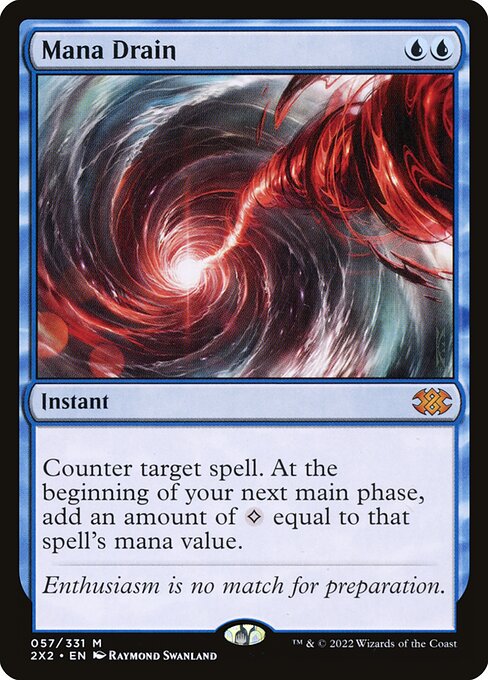
There’s not much of a gameplay difference between “in response, Mana Leak your Tarmogoyf” and “end of turn, Doom Blade your Tarmogoyf,” but there is a psychological delta in how it feels to the countered player. It isn’t so much that your creature got countered, but that you were deprived of even the psychological solace of having it temporarily. The outcome is the same, but the journey is different; it rankles.
Mark Rosewater is on record as believing that counters “cause unfun gameplay for the majority of players.” It’s also not a coincidence that the act of countering a spell has been flavored as arrogance, from Ertai to the early days of Jace—who has mellowed over the years, but was originally a gloating monomaniac in flavor text.
This all led me to wonder: is there such a thing as a “fun” or at least “friendly” counterspell? The tournament hall of fame is tiled with counters, from single-card engine cards like Forbid to alternate-cost staples like Force of Will and Daze to tempo champs like Remand. But the casual (or the quasi-casual liminus of Commander) space is less receptive to having their spells preëmpted.
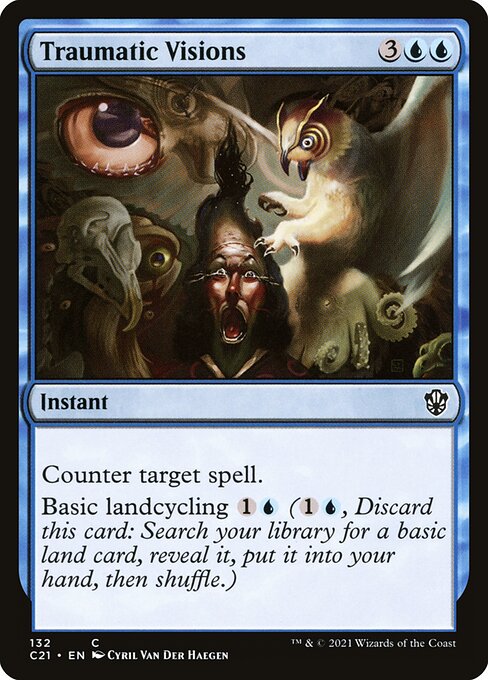
As someone who tends to play Blue (well, Sultai) and doesn’t want to alienate my friends excessively, I figured it was worth revisiting what we have available to us in Commander. We don’t want to take away the sting of counterspells completely, but we do want our opponents to feel as though they got a chance to enjoy their big spell.
The social contract of Commander is such that you can’t get upset when someone counters your Craterhoof Behemoth, but there’s a lot of nebulous territory between “game-ending must-counter threat” and “pet card or crucial component that will cause lingering friction if you counter.” So here’s a brief overview of counterspells that won’t wreck friendships but also won’t let your opponent wreck your gameplan.
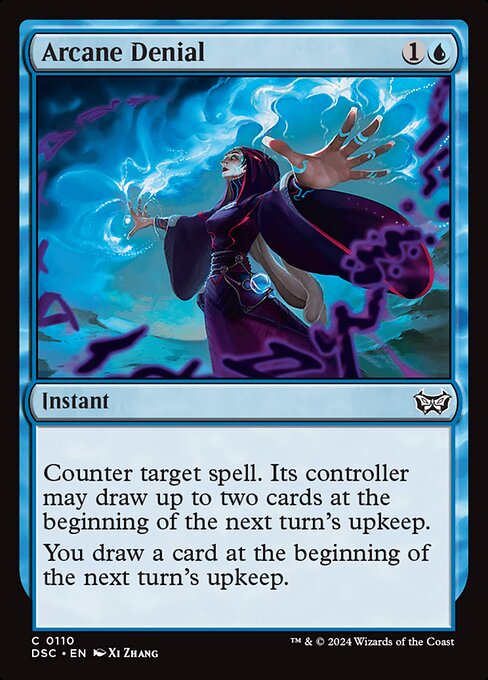
A classic, Arcane Denial is the bargainer’s counterspell. I’ve put it on Isochron Scepter before, which is a bit antisocial, but I’ve also used it to counter my own spells as a build-your-own-Recall. Dream Fracture is the cleaner version that puts you both at parity and loses the strange Ice age era delayed cantrip, but the two-mana version is the original.
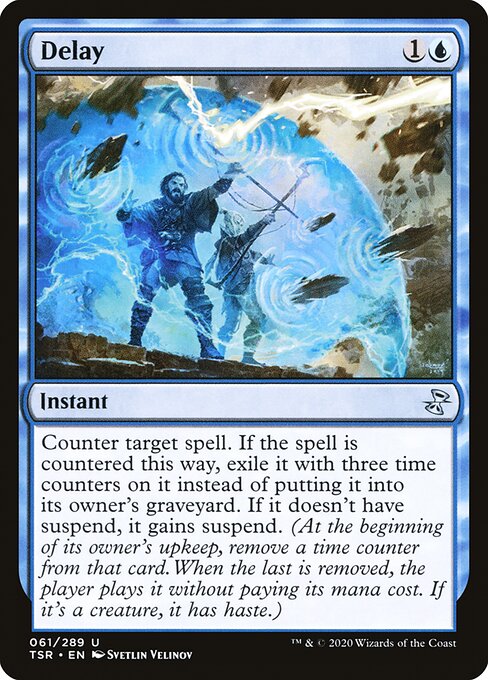
Delay and Ertai’s Meddling offer a nice compromise. They still get their spell, but they get it on your timetable, not theirs. When the spell is Wrath of God or their own counterspell, those extra few turns can be crucial. Even then, they can’t be too upset—it does technically resolve, after all.
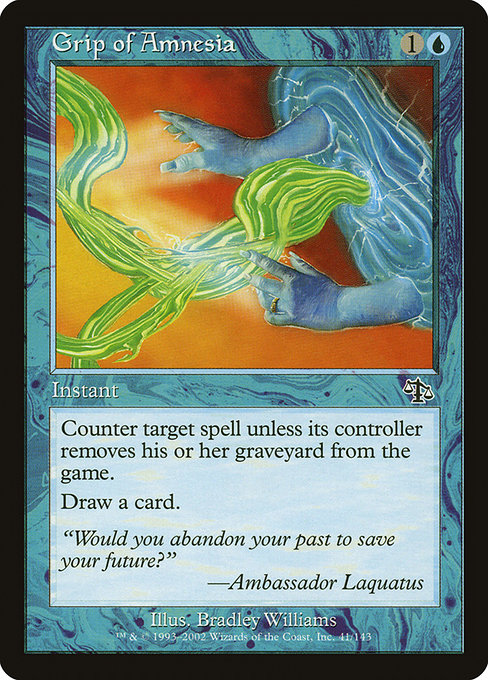
Against numerous decks, Grip of Amnesia is a cantripping Tormod’s Crypt. They’ll happily exile their ‘yard to land their spell. Against graveyard decks, it’s a more punitive decision. I don’t really recommend this sort of “punisher” style card, as giving your opponent choices is never going to benefit you, so this is really more of Cremate than counterspell. Still, anything that tweaks the nose of the Muldrotha player and draws you a card is worth recommending.
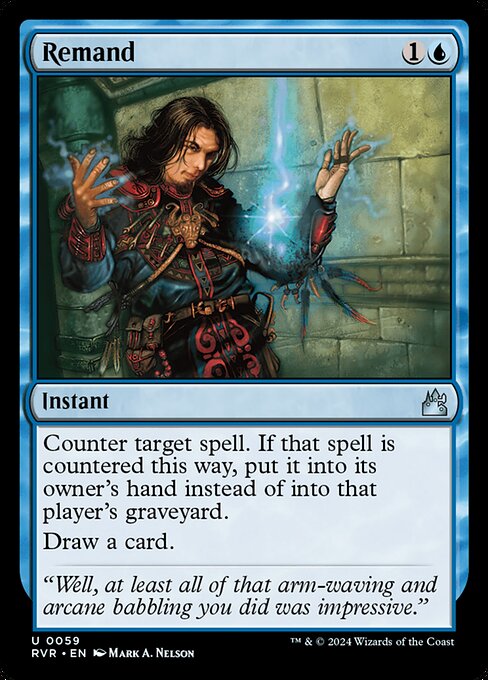
Remand is one of my favorite designs of all time. Early on in Constructed games, it’s a soft counterspell that replaces itself; later on, it’s less effective, but has the benefit of wasting your opponent’s time and mildly frustrating them. Plus it can save your own spell in a protracted counter war. In casual games, nobody minds too much. Newer players don’t much care that you drew a card, but do care that they get to retain their spell to cast later. It can stop reactive nonsense in its tracks—e.g., countering an opponent’s board wipe while they don’t have enough mana to retap—and rewards solid, tempo-oriented play.
Building off of this, the “bounce” variant of counterspells is a less antisocial way to deal with spells: Hullbreaker Horror, Venser, Shaper Savant, Divide by Zero, etc. Let them have their spell back.
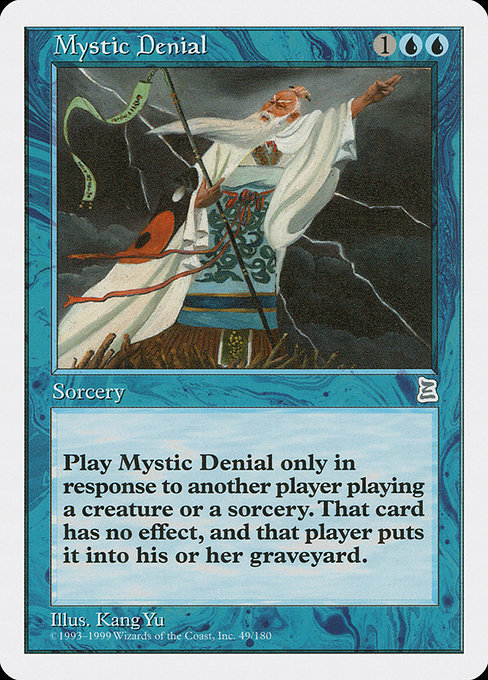
Mystic Denial is on the list for the quirk factor and the history lesson. You see, back in 1997-1999, Wizards thought an easy on-ramp to get brand-new players into the game was the Portal series—a simplified version of Magic with no artifacts, enchantments, activated abilities, or instants. Everything was a land, creature, or sorcery—even the handful of sorceries that would be instants instead were sorceries with instant-speed text tacked on, like Mystic Denial.
So while printed to counteract any card in Portal, Mystic Denial came to regular Magic as an instant that counters a Creature or Sorcery, making it quite unique in the stable of counterspells. Most counterspells are either flavored to counteract living spells or magic spells—i.e., you can break most counterspells down into Essence Scatters or Negates—but Mystic Denial, due to its oddball provenance, counters two unrelated types.
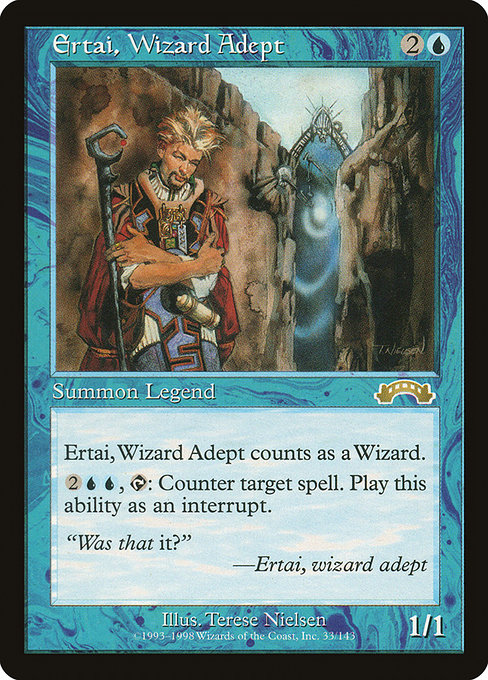
Finally, with Neon Dynasty fresh off the printer, permanent-based counters are a relevant tack to take. I don’t think Jin-Gitaxias, Progress Tyrant will win you any friends, but it at least leaves an interactable permanent that presents a quest for your opponents and a rush of exhilaration when they kill it and unlock the board. Decree of Silence, Mundungu, Ertai, Wizard Adept—these are all cards that present a chokepoint, but one with methods of exit.
Counterspells are—thankfully—a core component of the game, and it’s a training exercise to learn to be less reactive and keep your powder dry. You can grind control decks out by saving up threats and learning to bait out counters, you can run anti-counterspell tech (from the long-forgotten Scragnoth to the debutante Lier, Disciple of the Drowned), and you can make them misplay by deploying cheap creatures before they get their shields up. But whether you’ve been playing for twenty-five minutes or twenty-five years, you can still get tilted by an unexpected counter. Counterspells are humbling, and we can all use a periodic reminder that all our best-laid plans are as fragile as anyone else’s.
A lifelong resident of the Carolinas and a graduate of the University of North Carolina, Rob has played Magic since he picked a Darkling Stalker up off the soccer field at summer camp. He works for nonprofits as an educational strategies developer and, in his off-hours, enjoys writing fiction, playing games, and exploring new beers.

